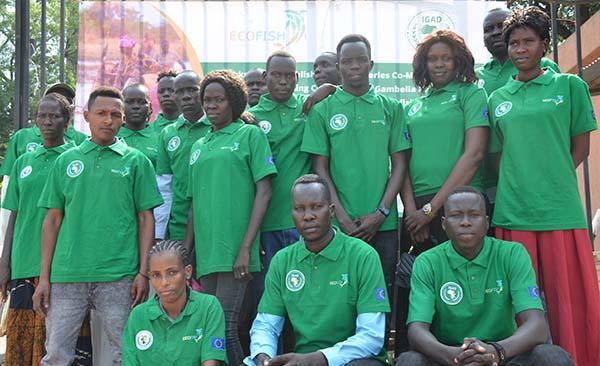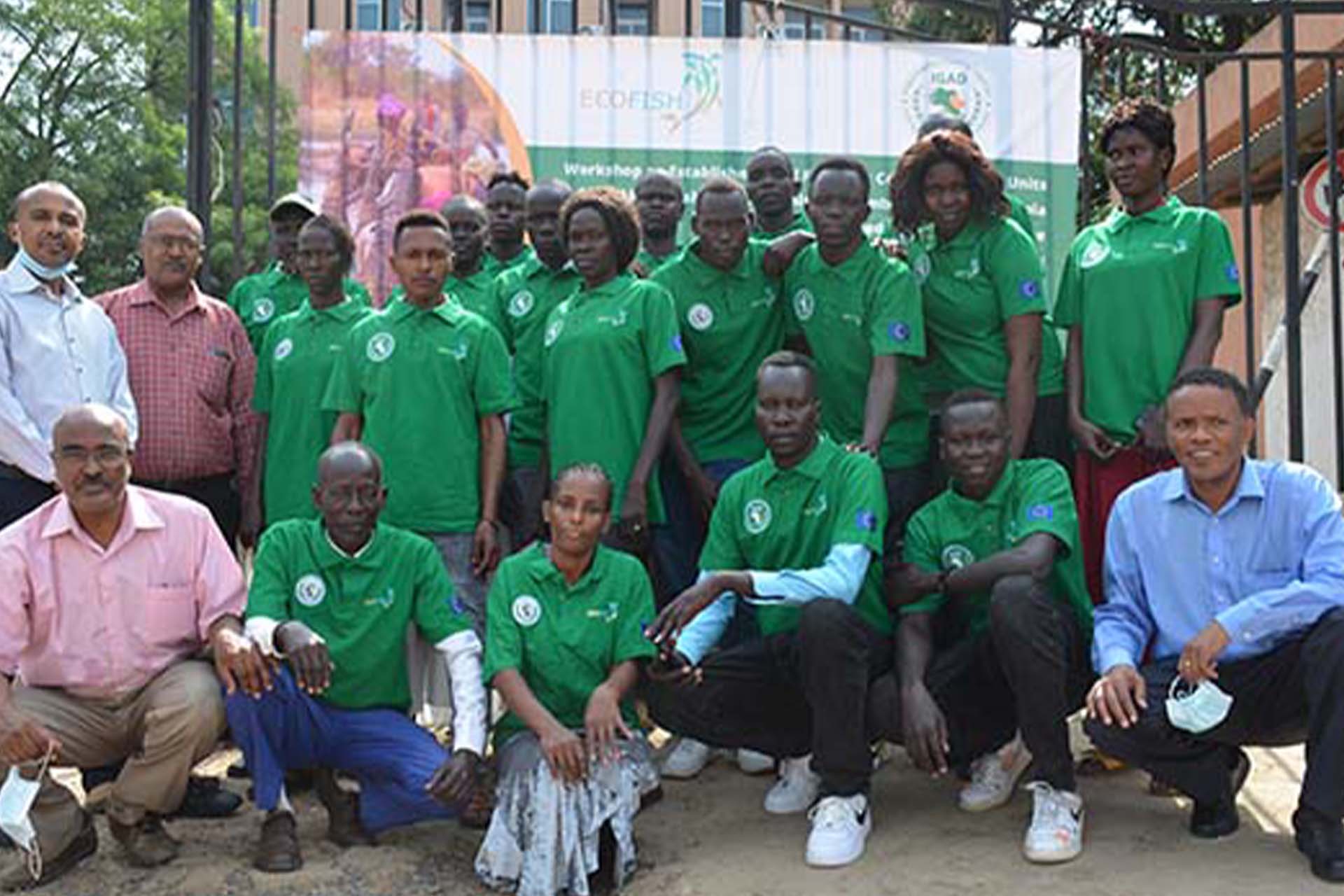
December 23, 2021 (GAMBELA, Ethiopia): As part of the Ecofish Programme, the Intergovernmental Authority on Development (IGAD) organized a workshop entitled” Establishment of Fisheries Co-Management Units and Building Capacities of Baro-Akobo Fishing Communities to manage the shared fish resources”.
The workshop brought together fisheries sector stakeholders from different fishing communities, local administration, fishing cooperatives, experts at various levels on Baro-Akobo river basin of Gambella Regional State, Ethiopia.
Dr. Eshete Dejen Program Manager for Environment and Coordinator for Blue Economy made an opening remark On behalf of the IGAD Executive Secretary, Dr. Workneh Gebayehu. He highlighted that the ECOFISH project core intervention is at the fishing community level that promotes fisheries co-management through bottom-up and participatory approach. The fisheries co-management concept is inclusive that engage fully the fishing community as well as the government institutions. Dr. Eshete stressed that this capacity building at the fishing community level is the testimony of IGAD Executive Secretary ambition to bring IGAD to the people.
Mr. Hussein Abegaz, Director of Fisheries at the Federal Ministry of Agriculture of Ethiopia in his opening remark mentioned that the best way to sustainable management of the fisheries resource is by fully engaging the fishing communities in all the processes. He briefed that fisheries management experience is limited in Ethiopia, it exists for few lakes and for riverine fisheries this is the first experience that will serve as a lesson to scale-up to other areas.
================================================================================
Rationale:
The IGAD Secretariat has developed and validated an integrated fisheries management plan (IFMP), or simply called fisheries co-management plan for Baro-Akobo-Sobat River Basin (BAS RB). In the fisheries co-management plan, one of the most important milestone stated is to establish fisheries co-management units. During the last decades, there has been a shift in the governance of fisheries to a broader approach that recognizes fishers’ participation, local stewardship, and shared decision-making in the management of fisheries. Thus, the BAS RB Fisheries Co-Management Plan is prepared based on the assumption that the resource users (fishing communities) will be involved in all the processes of the fisheries management system of the basin. The principles of fisheries co-management and the fisheries co-management document for the BAS RB is prepared with the above assumption, i.e., involving the fishing communities. Some model fisheries co-management units in the Gambella Town Fish Cooperatives of the Gambella Regional State located in the BAS RB will be established in the Ethiopian side. A similar workshop will be established in South Sudan side to establish fisheries co-management units in the same basin.
Objectives:
- To establish pilot fisheries co-management units
- To Introduce the principles of fisheries co-management for local fishers
- To build capacity of local fishing communities to involve in fisheries management
Expected Output:
- The pilot fisheries co-management units established in the BAS RB of the Ethiopian side
- Awareness of local communities on fisheries co-management raised
- Capacities of local communities in managing fish resources improved
- Some guiding rules and community-based bylaws developed

